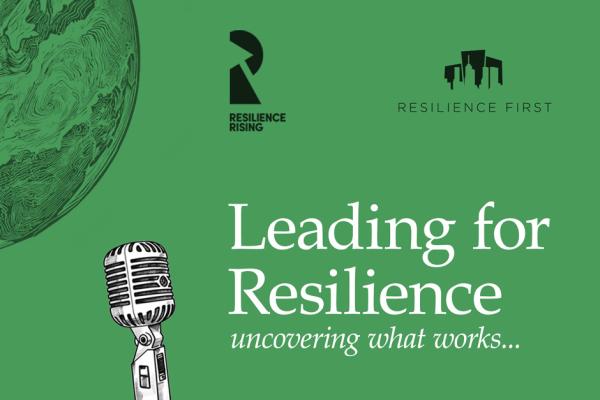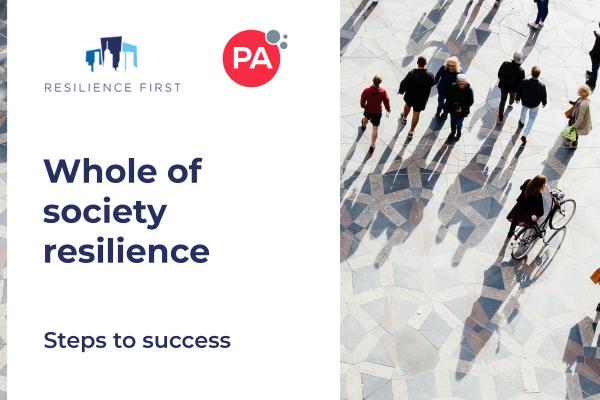Guest article by Elaine Roberts
Everything, Everywhere, All at Once is an apt narrative for the tumult facing leaders. Organisational resilience has become a top-table issue, no longer the domain of the business continuity team. Leading in the poly-crisis demands strategic and systemic change. Tough decisions will have to be made concerning markets, services, innovation, investment, business and operating models, talent, and culture. Companies need resilient leaders to deliver fresh strategies and build new capabilities and capacity.
Resilience begins in childhood.
Resilient leaders are not born. It is a process that starts in childhood. A recent paper by McKinsey asserts that “Societies and businesses can best succeed by adopting a culture of lifelong learning and supporting both children and adults in formal and informal educational opportunities. Public and private organizations that focus on building resilient leadership and talent can create a virtuous circle of improvement: an adaptable organizational environment will attract needed talent and be better placed for resilience to achieve sustainable growth.”.
Building personal resilience is a dynamic and ongoing process. Dr Eleanor Murray, the Programme Director for Oxford University’s, Leading Through Uncertainty and Disruption Programme, says that “resilience is made up of the actionable process that you can practice throughout your life, rather than an innate characteristic that some people possess”. She explains that every leader can practice becoming more resilient by developing their internal ‘resilience builders’. For example, competence, creativity, curiosity, determination, perceptiveness, and social support.
Overcoming obstacles develops self-awareness.
Self-resilience begins with self-awareness. In 2014, research by Howard and Irving, involving 167 leaders, concluded that:
- Leaders with a developed sense of self-awareness exhibited higher levels of self-resilience.
- Self-awareness is developed throughout an individual’s life as they face obstacles.
The British Army trains young officers to face obstacles early in their careers. ‘Obstacles’ include assault courses, arduous expeditions, and simulated war scenarios in cold and muddy training areas, being deprived of sleep and pushed out of their comfort zones physically and mentally. Colloquially, it’s called ‘character building.’ Ultimately this forms a positive belief system and a sense of individual capability.
Awareness of our strengths, weaknesses, motivations, emotions, and values allows us to act without bias. Self-awareness guides our actions in executing change. What is the impact of our behaviour on others? What is the perception of our teams of us as a leader? How and when to communicate. When to push for pace and scale, and when to be patient.
Transformative conversations bring clarity in crises.
Developing self-resilience is not just about overcoming challenges and obstacles. Transformative conversations can also help to bring the clarity necessary for composure in crises. In 2020, during the Covid-19 pandemic, The Resilience Shift and the Resilient Cities Network ran an experiment in reflective learning. The ‘Resilient Leadership: Learning from Crisis’ project originated from the shared belief that novel crises need new ways of learning. It involved twelve senior decision-makers, representing diverse organisations (seven from global corporations and five city Chief Resilience Officers), and sectors, geographies, ages, genders, and cultures. I was lucky enough to be one of the twelve.
Each week, for 16 weeks, we attended a scheduled one-to-one, 30-minute online conversation with Peter Willis. This was a ‘safe space’ where we could be honest, open, and vulnerable, without repercussion. Our synthesised reflections, summarised and shared with us each weekend, provided a rich perspective on the crisis and our leadership responses. Peter believes that the “quality of thinking is shaped by the quality to which one is heard”. Could humble yet transformative conversations develop self-aware and resilient leaders to deliver a sustainable inclusive future?
Resilient mindset creates the agency for change.
The McKinsey paper mentions developing a resilience mindset, where “constant renewal, the origination of new ideas at a fast pace, agility, adaptability, resilience and innovativeness are the principal determinants of success”. So, resilience is linked to learning.
Professor Ruth Crick has researched how we learn to develop our resilient agency to deliver the technical resilience required for sustainability. Her analysis, of the dynamic feedback of learning power for self-directed change, measures our orientation to learning, across the spectrum of rigid persistence to fragile dependence, and seven personal qualities: mindful agency, sense-making, creativity, curiosity, belonging, collaboration and hope and optimism. Recently, I started my learning journey using the WILD Learning Power Profile and notice how my focus has shifted as I transition to self-employed consultancy after an executive career.
Resilient leadership is a continual learning journey.
Everything, Everywhere, All at Once shows parallel lives that we could have led to saving existence, a metaphor for our volatile, uncertain, complex, and ambiguous world. Business needs leaders who are self-resilient and can lead resilient change. As Rumi said, “Yesterday I was clever, so I wanted to change the world. Today I am wise, so I am changing myself.”



